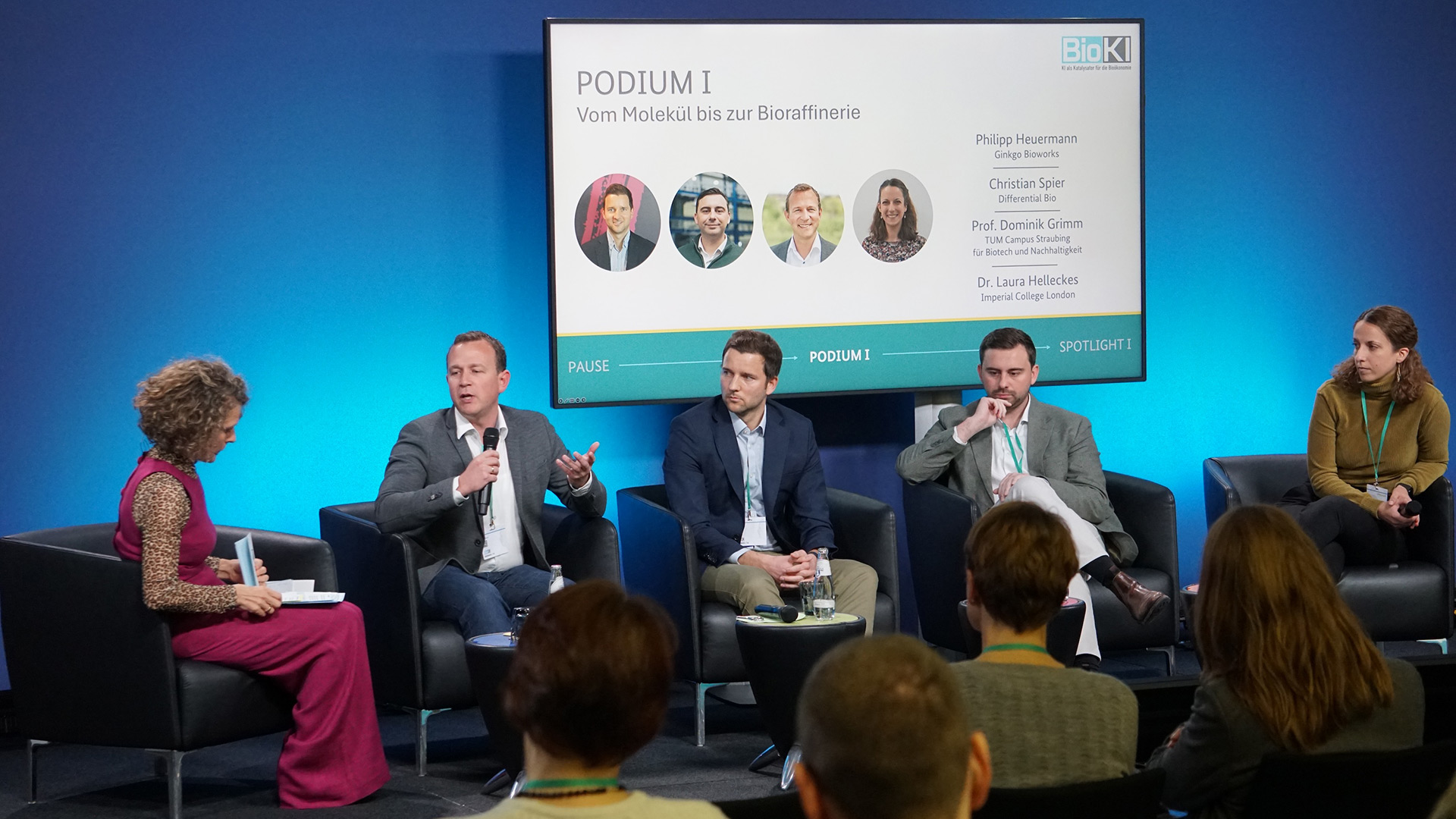By enabling faster analysis of large datasets, automating complex processes, and optimizing value chains, AI can help improve understanding, design, and utilization of biological systems. How AI can accelerate the biotechnological revolution was the focus of a panel discussion featuring Philipp Heuermann from Ginkgo Bioworks, Christian Spier from Differential Bio, Prof. Dominik Grimm from TUMCS, and Laura Helleckes from Imperial College London. The exact topic of the discussion was: “From Molecules to Biorefineries: How Will AI Accelerate the Biological Revolution?”
Prof. Grimm particularly emphasized the challenges involved in scaling biotechnological processes. “We need intelligent and fast methods to process the huge volumes of data,” he explained, noting that intermediate steps in scaling are crucial for bringing processes into production more quickly and obtaining real-world data for further optimization.
As an expert in bioinformatics and machine learning, Grimm conducts research on computational methods aimed at more efficiently analyzing and optimizing biological and chemical systems. His goal is to advance sustainable applications in the life sciences and agriculture. Since 2018, he has been Professor of Bioinformatics at the Weihenstephan-Triesdorf University of Applied Sciences (HSWT) at the TUM Campus Straubing for Biotechnology and Sustainability.
